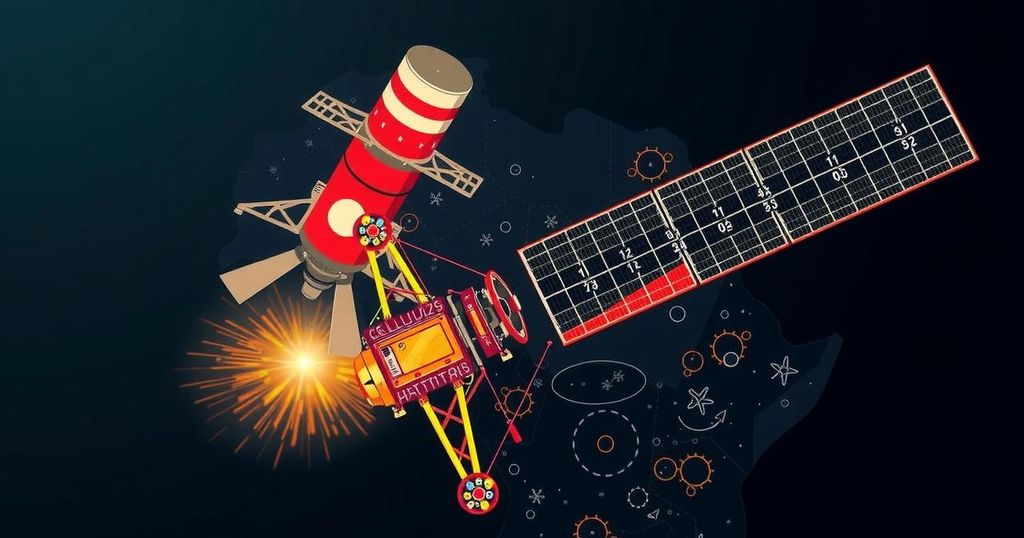The Surge of Satellite Launches in Africa: Opportunities and Challenges
African countries are increasingly launching satellites, exemplified by Senegal’s GaindeSAT-1A, marking progress towards technological independence. The reduction in satellite launch costs has opened opportunities for smaller nations, even as reliance on foreign technology remains a significant challenge. The need for local satellite data to tackle climate change and resource monitoring is paramount, while global powers compete for influence in Africa’s emerging space endeavors.
The wave of satellite launches across Africa has garnered attention, particularly as the continent seeks to harness technology for sustainable development. On 16 August, Senegal made history by launching GaindeSAT-1A, its first satellite designed for earth observation and telecommunications, marking a significant move towards technological independence. Experts cite the decreasing cost of satellite launches as a fundamental factor enabling this rush, fostering opportunities for smaller nations to engage in space exploration. Despite these advances, Africa remains reliant on foreign space technology and lacks independent launch facilities, which places the onus on external partnerships, often with geopolitical implications. The continent’s vulnerability to climate change necessitates utilizing satellite data for monitoring environmental hazards, calling for more domestically operated satellites to meet specific regional needs. Advocates argue that while external collaborations provide necessary resources, fostering homegrown capabilities will ultimately empower African nations to tailor technology solutions that address local challenges more effectively. Moreover, there is anticipation of increased competition from global powers vying for influence in Africa’s burgeoning space sector, leading to a landscape where strategic negotiations can benefit African interests. Space ports in equatorial regions may play a critical role in future launches, indicating potential shifts in global space dynamics.
The article addresses the surge of satellite launches from African countries, highlighting the strategic importance of these initiatives in response to developmental and environmental challenges. It traces the recent historical context of satellite deployment in Africa and discusses the implications of lower launch costs, the need for technological sovereignty, and the ongoing reliance on external countries for space capabilities. The narrative stresses the importance of self-sufficiency in satellite operations to better address the unique challenges faced by African nations, particularly concerning climate change and resource management.
In conclusion, the recent proliferation of satellite launches in Africa signifies a pivotal moment in the continent’s technological advancement. While positive strides have been made, the journey toward technological independence and effective satellite utilization remains challenging. African nations must work towards developing their own launch capacities and satellite technologies to fully leverage the benefits of space data in addressing critical issues such as climate change and resource management. The ongoing global interest in African space programs underscores both the potential for growth and the need for careful navigation of international partnerships.
Original Source: www.bbc.com




Post Comment